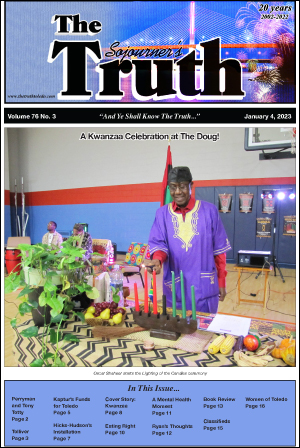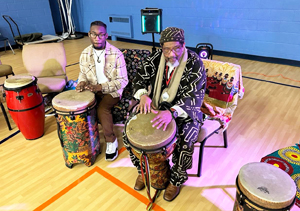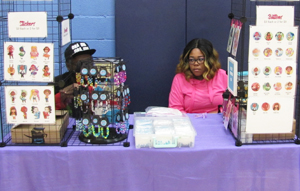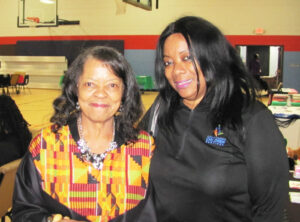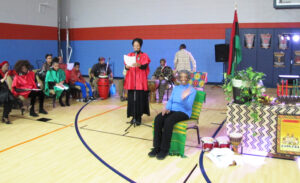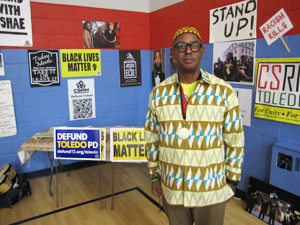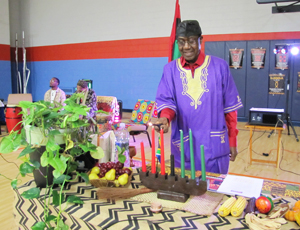
The Truth Staff
The community celebrated Kwanzaa last week at the Frederick Douglass Community Association, continuing a local tradition begun here in Toledo by Diane Gordon’s family in their home in 1967.
The Toledo Kwanzaa House (TKH), the local chapter of “Ohio Celebrates Kwanzaa,” hosted its first collaboration in 2020 via zoom joining Akron, Cincinnati, Cleveland, Dayton, Kent and Youngstown.
The celebration last week at the FDCA began every night at 6:00 p.m. after an hour of mingling and sampling the wares of the local vendors.
Kwanzaa was founded in Los Angeles in 1966 in the wake of the anger sparked by police actions triggering the Watts Rebellion of 1965. During the week of Kwanzaa, December 26 to January 1, families come together to honor the ancestors and to celebrate African and African American culture. Each day a candle is lit to highlight the principle of the day. The seven principles of Kwanzaa are: Umoja (unity) – maintaining unity as a family, community and race of people; Kujichagulia (self-determination) – defining, naming, creating and speaking for ourselves; Ujima (collective work and responsibility) – building and maintaining our community solving problems together; Ujamaa (cooperative economics ) – building and maintaining retail stores and other businesses and to profit from these ventures; Nia (purpose) – working collectively to build communities that will restore the greatness of African American people; Kuumba (creativity) – finding new, innovative ways to live; Imani (faith) – faith in community, belief in ourselves, our parent, our teachers, our leaders.
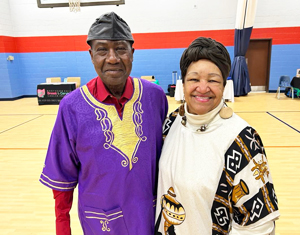
The nightly ceremonies at the Doug featured seven different nightly hosts: Washington Muhammad; Rahwae Shuman; Diane Gordon, Oscar Shaheer; Reverend Davis, Elsie Harbour and Donald Lynn.
On Thursday, Oscar Shaheer, owner of Your Community Market on Nebraska, led the discussion about that night’s principle, Ujamaa (collective economics), and opened his address by stressing the need to look inward as a group and rely upon each other within that group.
“It has something to do with our culture,” said Shaheer of Kwanzaa. “It’s about us; it’s about the way we express ourselves about ourselves; it’s about unity – having self-determination, having cooperative work, having cooperative economics, having purpose, having creativity.
Shaheer asked his audience to “work together to build and strengthen our community” by focusing on those elements of a successful society: First, family; second, a good strong spiritual base; third a good education and fourth, business.
Shaheer repeatedly emphasized the need for African Americans to rely upon themselves given the treatment they had been exposed to over the centuries.
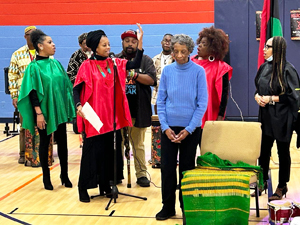
“When you mistreat a people and do not give justice, don’t think you will get away with it,” he added.
The nightly Kwanzaa ceremonies included music and drumming to start, followed by the recognition of elders, a libation, a lightning of the candles reflecting each night of the celebration, an explanation of that day’s principle, a speaker and value statement.

